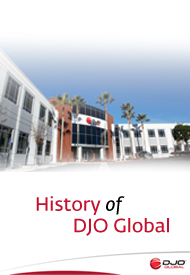New Study Shows Increased Baseball Pitch Speed and Recovery with Neuromuscular Electrical Stimulation
- Compex® NMES Device Shown To Be Most Effective Form of Between-Inning Recovery for Pitchers -
- Growing Use of Safe, Legal, FDA-Cleared Competitive Advantage -
SAN DIEGO – In a recent study published in The Journal of Strength and Conditioning Research, researchers analyzed seven NCAA Division II collegiate pitchers and found that pitch speed and perceived recovery increased, while blood lactic acid (BLa) levels (often associated with impaired muscle motor control) decreased when the Compex® neuromuscular electrical stimulation (NMES or EMS) was used between innings.
“This is the first known formal research done to determine if NMES is an effective recovery technique,” said Courtney Warren, a Certified Strength and Conditioning Specialist and co-author of the study. “The increase in pitching speed and intensity we documented in pitchers utilizing the NMES method warrants future analysis; we’re excited to continue pursuing these positive results.”
The study, published in the March 2011 edition, analyzed three different methods of between-inning recovery for pitchers: Active Recovery (AR), in which pitchers often participate in active, cardiovascular movement in an effort to increase blood flow to the arm and shoulder; Passive Recovery (PR), in which athletes simply rest, often in the form of sitting, lying down, or light stretching; and NMES which induces local muscle contractions without cardiovascular strain or mental fatigue, increasing blood flow in the areas targeted. Each pitcher was subjected to the three different methods of recovery on three separate days while following their normal pitching rotations as prescribed by their pitching coach.
Researchers determined the most effective method of recovery by calculating the pitchers’ differences in blood lactic acid levels before and after each inning pitched as a biological measurement, their average pitching speed as a physiological measurement and their perceived pitching and recovery as a psychological measurement.
Lactic acid levels naturally increase in the muscles of pitchers as they continue to do repetitive, high-intensity motions. This increase boosts the presence of hydrogen ions, which causes a decrease in pH levels within the muscle. The resulting low pH in muscles corresponds to a highly acidic aqueous solution which causes impaired motor control during pitching. In response, trainers commonly attempt to increase blood flow and oxygen content in the blood in an effort to flush the hydrogen ions from the shoulders and affected muscles of pitchers.
After analysis, the researchers found that a leading NMES device, Compex®, made by DJO Global of Vista, CA, provided the only condition in which significant decreases in BLa levels during recovery periods were seen. Additionally, perceived recovery was best for the NMES and PR conditions. Researchers said that the combination of decreased BLa levels and improvement in self-reported recovery may lead to an increase in pitching performance and pitch speed.
The Compex unit is an FDA-cleared, hand-held device that is used by performance athletes to provide active recovery and performance enhancement. The unit’s small electrodes are attached to specific muscles on the body to provide neuromuscular stimulation governed by a pre-programmed protocol. Athletes typically use the devices for warm up, post-work out or to enhance passive relaxation, taking from three to 24 minutes cycle through the exercise depending on the desired program.
Despite the inception of, and strict adherence to, pitch counts and the increasing use of relief pitchers, the injury rate of pitchers is still steadily rising. The study suggests that since decreasing pitch count is not improving pitching performance or injury rates, that between-inning treatment methods such as electrical stimulation may provide a competitive advantage in the bullpens of collegiate and professional baseball organizations.
About DJO Global
DJO Global is a leading global developer, manufacturer and distributor of high-quality medical devices and services that provide solutions for musculoskeletal health, vascular health and pain management. The Company’s products address the continuum of patient care from injury prevention to rehabilitation after surgery, injury or from degenerative disease, enabling people to regain or maintain their natural motion. Its products are used by orthopedic specialists, spine surgeons, primary care physicians, pain management specialists, physical therapists, podiatrists, chiropractors, athletic trainers and other healthcare professionals. In addition, many of the Company’s medical devices and related accessories are used by athletes and patients for injury prevention and at-home physical therapy treatment. The Company’s product lines include rigid and soft orthopedic bracing, hot and cold therapy, bone growth stimulators, vascular therapy systems and compression garments, therapeutic shoes and inserts, electrical stimulators used for pain management and physical therapy products. The Company’s surgical division offers a comprehensive suite of reconstructive joint products for the hip, knee and shoulder. DJO Global’s products are marketed under a portfolio of brands including Aircast®, Chattanooga, CMF™, Compex®, DonJoy®, Empi®, ProCare®, DJO® Surgical and Dr. Comfort®. For additional information on the Company, please visit www.DJOglobal.com.
For more information about Compex® visit www.shopcompex.com.
Media Contacts:
DJO Global, Inc.
Nancy Goglin/Jacquie Matzat
(760) 271-4109
nancy.goglin[at]djoglobal[dot]com, jacquie.matzat[at]djoglobal[dot]com
MGA
James Chisum/Sandy Nesheiwat
(562) 467-2020
jamesc[at]millergeer[dot]com
DJO Investor Contact:
DJO Global, Inc.
Mark Francois, Director of Investor Relations
(760) 734-4766
